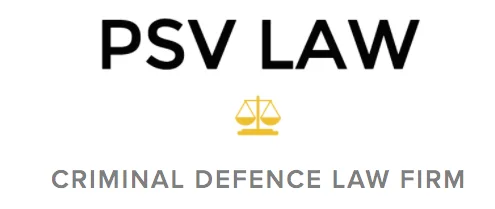Your case matters to you. All cases, big or small, matter to us.
Call (647) 967-5787 for a direct, 30 minute cost-free consult today. 24/7.
As part of our commitment to ensuring access-to-justice in the legal profession, we at PSV LAW offer interest-free payment plans and reduced fees are available on a case-by-case basis for low-income individuals.
Both charges of theft and fraud can be divided into two categories: under $5000 or over $5000. As in all criminal cases, a conviction of a theft or fraud charge can have profoundly serious consequences. A criminal record can affect employment, reputation, immigration, your family and your personal freedom. A conviction for theft or fraud is particularly problematic as it is seen to be a crime of dishonesty. It is vital to choose a lawyer that knows and understands the intricacies of a theft or a fraud charge and how to best defend yourself and fight for your rights. At PSV LAW, we have the knowledge and experience to understand not only how the Crown will proceed, but also how to anticipate potential problems that can arise in such cases.
Theft
The Crown will typically have to prove the following:
- identity of accused
- date and time of incident
- jurisdiction (incl. region and province)
- property was owned by someone (use witness or documents under ss. 491.2 and 657.1)
- value of the property
- continuity of the property
- file photo of property or actual property as exhibits (s. 491.2)
- accused took or converted property
- the owner did not give permission for the accused to take or convert it
- the items were not given to the accused in good faith (no colour of right)
- the accused intended to deprive the owner of the property
Shoplifting
In a case of shoplifting the Crown will typically prove, in addition to the general elements of proof, the following:
- That the accused did not pay for items or make attempt to pay.
- That the accused did not have money to pay for the items.
- Whether the accused had property in possession at time of arrest.
In a theft case the crown must prove a specific intent of the accused to deprive its owner of the property.
The offence of theft when in the context of shop-lifting is complete even before the accused leaves the store. By picking up the item with the requisite intent to steal is sufficient to make out the offence in its entirety.
Colour of Right
This is an honest belief on the part of the accused that they had a right to possess the property, despite that there was no true basis for the belief in fact or law. This does not include mere belief in a moral entitlement to the property.
Subject Matter of Theft
The provision states that "anything" can be the subject of theft. This term was interpreted broadly as including both tangibles and intangibles. The subject of theft must be:
- be property of some sort
- property capable of being taken or converted
- taken or converted in a way that the owner is deprived of the property in some way.
Moreover, confidential information cannot be the subject of theft as the owner is not deprived of the subject.
"Help! I've been charged with theft! What can I say to defend myself?"
Typical defences will include claims such as:
- the accused paid for the property (colour of right)
- the accused was given the property (colour of right)
- the accused honestly but mistakenly believed the property was theirs (honest but mistaken belief)
- the accused forgot they were in possession of it (honest but mistaken belief)
Fraud:
Unlike theft, Fraud is not definitely defined in the Criminal Code. The basic definition requires elements of "dishonesty" and "deprivation".
The actus reus for the offence is made out where:
- there was a prohibited act of deceit, a falsehood or some other fraudulent means; and
- there was a deprivation caused by the prohibited act. Either an actual loss or a pecuniary interest at risk.
The mens rea of the offence can be made out in the following circumstances:
The mens rea is the subjective awareness of undertaking the prohibited act and awareness of the risk of depriving another of property. The personal feelings of the “morality or honesty” of the act is not relevant. The awareness of the risk of deprivation include recklessness. Making use of funds which the accused was wilful blindness as to it source is considered dishonest. A mistaken belief that the victim owes the accused money cannot justify collecting debt by deceit. Moreover, that the accused simply "hoped the deprivation would not take place" is not a defence where the accused knew that he was undertaking a prohibited act that could cause deprivation. In social assistance or welfare fraud, the accused does not need to know that the regulations prohibited false applications.









